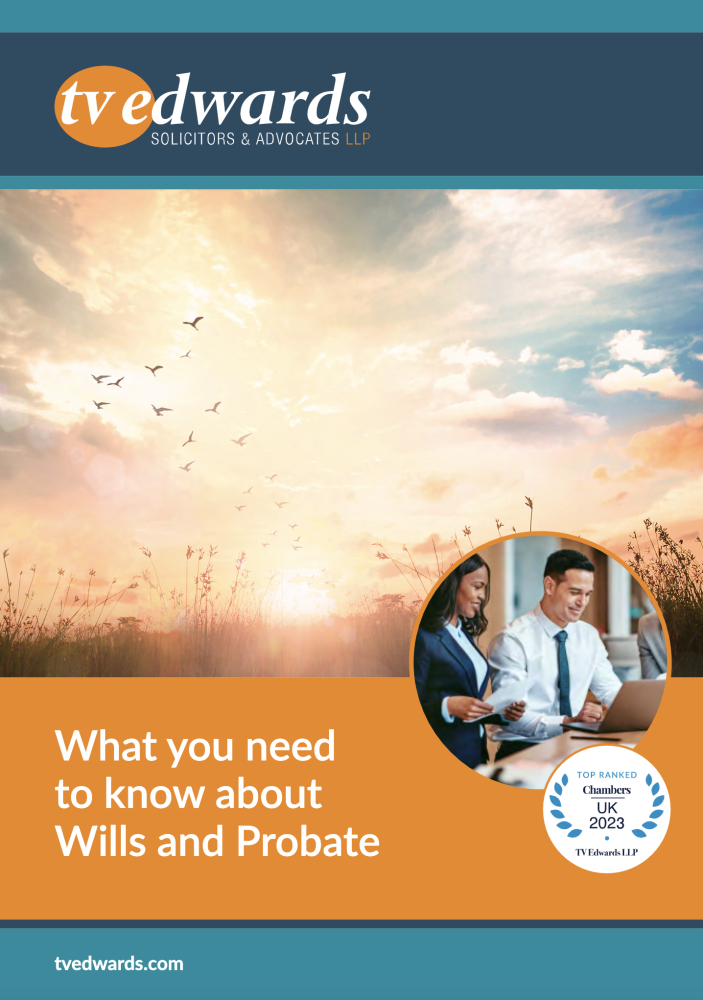We are able to provide you with tailored legal advice on your situation.
How Can Our Contested Probate Solicitors Help?
Our team of highly skilled contested probate solicitors understand that it is a very stressful time when a loved one passes away.
Our team of litigators is incredibly knowledgeable in contested probate law, which enables us to provide unrivalled quality service to each of our clients, no matter how complicated the situation is.
We regularly deal with all aspects of contested probate. We will work with our clients to assist them in bringing a claim/defending a claim under the Inheritance (Provision for Family and Dependants) (IPFD) Act 1975 (“the 1975 Act”).
As leading probate lawyers, we are able to provide you with tailored legal advice on your situation with strategic planning and discussion throughout to achieve your desired outcome.
We will negotiate hard to ensure that you end up with what you deserve out of your loved one’s estate.
What Does The 1975 Act Do?
The Inheritance (Provision for Family and Dependants) Act 1975 enables certain individuals to apply to the Court and make a claim against a deceased person’s estate.
This is done where they allege that the deceased did not make reasonable financial provisions for them either through a Will or in line with the rules of intestacy (where there is no Will).
Who Can Make A Claim?
The classes of applicant who are able to bring a claim is defined under the 1975 Act and includes:
- The spouse or civil partner of the deceased
- A person who, for the two years prior to the death, was residing with the deceased as if they were a spouse or civil partner
- A child of the deceased
- A person who was treated as a child of the family by the deceased
- The former spouse or civil partner of the deceased (as long as that person has not remarried/entered into a subsequent civil partnership)
- Any other person who was maintained, wholly or partly, by the deceased immediately prior to their death.
A person is deemed as being maintained by the deceased where they were financially supported or partially dependant on the deceased during their lifetime, and that maintenance continued immediately before their death.
This can include monetary maintenance in the form of regular payments or large gifts.
A provision of housing can also be deemed as maintenance, such as the deceased allowing the claimant to live in their property either rent-free or at a nominal or reduced rent.
Spouse Or Civil Partner
Where the applicant is a spouse or civil partner, as a starting point, the Court will consider what each partner would have likely received had the marriage or civil partnership been terminated by divorce or dissolution rather than death.
Therefore, factors including the age of the applicant, the length of the marriage/civil partnership, and the applicant’s contribution to the welfare of the deceased’s home and family will all be considered, including looking after the home and caring for the family.
Children
For children, the court will consider the way the child might be expected to be educated or trained.
For individuals treated like a child of the deceased, the court will also look at factors including:
- Whether the deceased maintained them and the duration of which they were maintained.
- The extent of the maintenance, e.g., financial, housing, or other.
- Whether the deceased assumed responsibility for maintaining the applicant
- Whether the deceased maintained the individual knowing that they were not their own child.
- The liability on any other person to maintain the applicant.
What Can The Court Order?
The Court has wide discretion when considering what order to make. The following orders are very common:
- The Court could award a lump sum to be paid to the applicant, either for general use or a particular purpose.
- The Court can order smaller amounts of periodic payments to be made to the applicant for maintenance.
- Where parties are arguing over a specific property, the Court may order that it be sold and proceeds split. Alternatively, the property should be transferred to just one of the parties.
- The Court could hold that any property is to be held in trust for particular beneficiaries and/ or the applicant.

Generally, there are five grounds for contesting a person’s will
They are:
- The deceased lacked the requisite mental capacity at the time of signing the will
- The deceased did not properly understand or approve the content of the will
- Undue influence was exerted on the deceased
- The will was forged
- The will does not reflect the wishes of the deceased due to a clerical error or misunderstanding as to the deceased’s intentions.
If you are unsure as to whether the 1975 Act would apply in your circumstances, please call us today on 020 3440 8000 or email adam.haffenden@tvedwards.com
We can arrange an initial fixed-fee consultation; our contested probate solicitors will be more than happy to help.
We have offices based in Whitechapel and Clapham Junction, which have nearby parking and good transport links.
Frequently Asked Questions
Can I see the Will?
If you are a beneficiary you are entitled to see a copy of the Will and in some cases it will become a public document which means anyone can purchase a copy for a fee.
Should I lodge a caveat?
Not unless there is a dispute in relation to who should administer the estate. If you are not entitled to administer the estate either because you are not an appointed Executor in the Will or because you are not entitled under the rules of intestacy or otherwise entitled to apply for a grant you should not lodge a caveat.
Who can challenge an Executor or Administrator?
Another Executor, Administrator or a beneficiary of the estate or someone acting on their behalf.
 You & Your Family
You & Your Family You & Your Property
You & Your Property You & Your Business
You & Your Business










